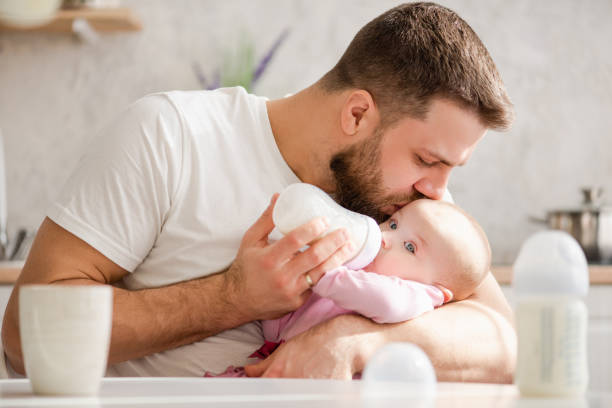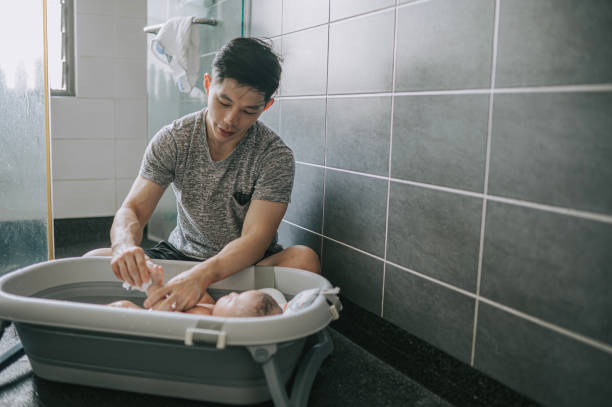The arrival of a newborn is a life-changing event, bringing joy, excitement, and, inevitably, challenges. While mothers often take center stage in caring for the baby, the role of fathers is equally critical. In fact, a father’s active participation in newborn care not only strengthens the bond with the baby but also provides much-needed support to the mother during this intense period. This article explores how fathers can be more involved in caring for their newborns and why their role is so vital.
The Importance of Fatherly Involvement in Newborn Care
Traditionally, caregiving has been viewed as the mother’s responsibility, but this mindset is rapidly changing. Today, more fathers are embracing their role in child-rearing, recognizing that their involvement is crucial for the well-being of both the baby and the mother. Studies show that children benefit significantly from having an engaged father from birth. It fosters a strong father-child bond, aids in the baby’s emotional development, and sets the foundation for a positive, lifelong relationship.

Moreover, when fathers take an active role in caring for their newborns, it alleviates some of the physical and emotional burdens on the mother. This not only helps in reducing her stress and fatigue but also strengthens the marital relationship, creating a harmonious family environment.
Practical Ways Fathers Can Help with Newborn Care
Nighttime Feedings:
One of the most challenging aspects of newborn care is the constant feeding schedule, especially during the night. Fathers can take turns with nighttime feedings, either by bottle-feeding breast milk or formula. This allows the mother to get some much-needed rest, making her more energized and less stressed during the day.

Diaper Duty:
Changing diapers is a frequent task in the early months of a baby’s life. By taking on diaper duty, fathers can contribute significantly to the daily care routine. It’s a simple yet impactful way to share the workload and show that both parents are equally invested in their child’s care.
Soothing the Baby:
Babies often cry or become fussy, especially during the first few months. Fathers can take turns soothing the baby, whether it’s through rocking, singing, or walking around with them. This not only gives the mother a break but also helps the baby get accustomed to the father’s presence and comfort.

Bath Time:
Bathing a newborn can be a daunting task, but it’s also an excellent opportunity for fathers to bond with their baby. By taking charge of bath time, dads can create a soothing and enjoyable experience for their little one while also giving the mother some time to relax.

Household Chores:
Newborn care often leaves little time for household chores. Fathers can step in by handling tasks like cooking, cleaning, or grocery shopping. This support allows the mother to focus on the baby and recuperate from childbirth without feeling overwhelmed by household responsibilities.

Emotional Support:
Beyond physical tasks, fathers play a crucial role in providing emotional support to their wives. The postpartum period can be emotionally challenging, and having a supportive partner makes a world of difference. Listening, offering reassurance, and being present can help mothers navigate this period with greater ease and confidence.

The Long-Term Benefits of Active Father Involvement
When fathers are actively involved in the early stages of their child’s life, the benefits extend far beyond the newborn phase. Children who grow up with engaged fathers tend to have better cognitive and social development, higher self-esteem, and stronger problem-solving skills. Additionally, the partnership between parents becomes more balanced and resilient, fostering a healthy family dynamic.

For fathers, being hands-on in their baby’s care also brings immense personal rewards. It deepens their connection with their child, creating a strong foundation for a lifelong relationship. Moreover, it sets a positive example for future generations, challenging traditional gender roles and promoting equality in parenting.
